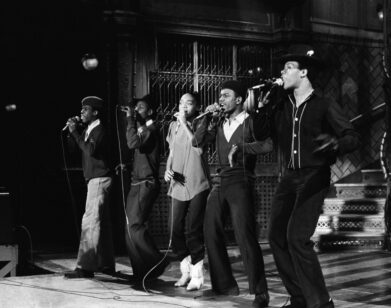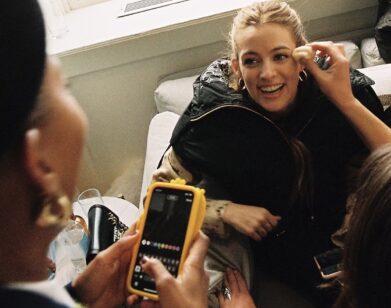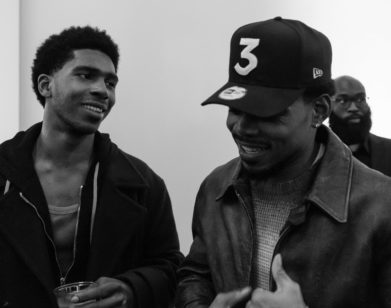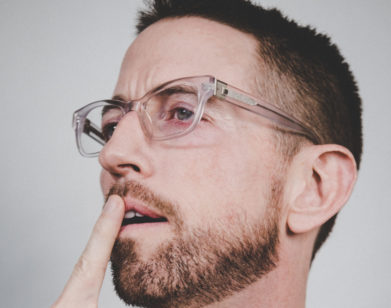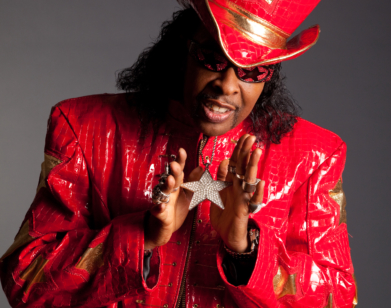q&a
Black Thought Wants to Speak Truth to Power
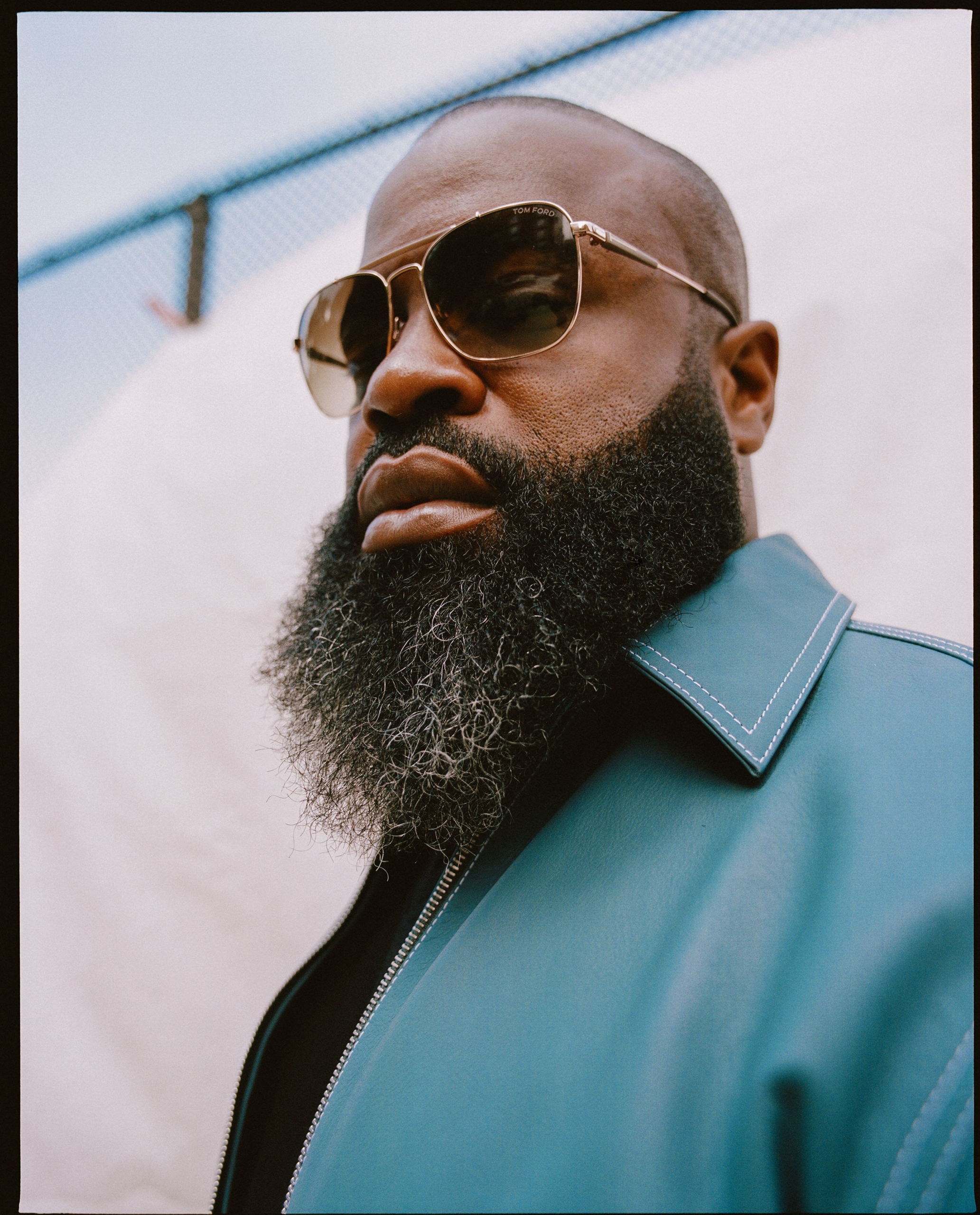 Tariq Trotter—better known as Black Thought, the poetic frontman and emcee of the legendary hip-hop group The Roots—has been in the music game thriving for a few decades now. Whether you want to start the clock from when The Roots released their first record, Organix, in 1993, or even earlier, when the fledgling rapper was absorbing the craft in Philadelphia parks and basement parties in the early ’80s, the emcee is both a veteran and an ambassador of hip-hop. We caught up with Black Thought, who will release his latest solo record, Streams of Thought, Vol. 3, in September, to ask him about his early days in music, his bond with his longtime drummer and collaborator Questlove, and how to survive the news cycle when you’re floating around it.
Tariq Trotter—better known as Black Thought, the poetic frontman and emcee of the legendary hip-hop group The Roots—has been in the music game thriving for a few decades now. Whether you want to start the clock from when The Roots released their first record, Organix, in 1993, or even earlier, when the fledgling rapper was absorbing the craft in Philadelphia parks and basement parties in the early ’80s, the emcee is both a veteran and an ambassador of hip-hop. We caught up with Black Thought, who will release his latest solo record, Streams of Thought, Vol. 3, in September, to ask him about his early days in music, his bond with his longtime drummer and collaborator Questlove, and how to survive the news cycle when you’re floating around it.
———
JAKE UITTI: When did music first enter your atmosphere as a young person?
BLACK THOUGHT: I was more born into music than it actually coming into my sphere at any given point. I was always sort of immersed in the music of the people who raised me. My mother listened to lots of funk and soul and jazz music and doo-wop back in the day. I had an older brother who listened to lots of hip-hop, or the music that would become hip-hop, the instrumental songs like disco breaks and stuff like that. And there was the gospel music that my grandmother would listen to. Those influences manifested themselves in different ways at different times. Some of my earliest performances were covering songs from Elvis Presley or James Brown or doo-wop music. I would sing a lot before I started rapping. I got into writing rhymes and performing raps and stuff at around age nine.
UITTI: How did you start rapping? And did those many original influences give you the dexterity to feel comfortable working over lots of different styles or rhythms?
BLACK THOUGHT: Yeah. I was born in 1973 in October, which is just a couple months after what people consider the first hip-hop party. So, I was essentially born at the same time as the culture. I grew up within it. So, as the news and the influence of parties that initially took place in the parks and the basements of the Bronx moved just a little further down to Philly, I was very much a part of that. I was that kid who, at age nine or age 10, was inside, you know, the dark basement parties where the DJs would spin. I was out there at the basketball court parties, the public parks where guys would pull up with their huge speakers and a DJ would set up and start spinning. And whenever an emcee would get on the mic, which was usually as an accessory to the DJ, hyping up the DJ and just trying to keep the crowd engaged, I would mimic that. So, I would always improvise and mimic that cadence and freestyle and that led to eventually writing songs. At the age of nine, I wrote my first song and it was in the cadence of this super-rap style that Kool Moe Dee and the Treacherous Three used. As well as that same style was used by local emcees in South Philadelphia where I lived at the time. Yeah, I mimicked it. I used my own words and I could mimic that style and the rest, as they say, is history.
UITTI: Is there a secret to rapping or freestyling seemingly endlessly, as you’ve been known to do?
BLACK THOUGHT: It is muscle memory at this point. I think earlier on, the secret was to maintain ambidexterity. To maintain an open mind and to be able to alternate and swap out those influences. I’ve been able to lean more towards whatever strength, whichever discipline is required in a given moment. And, I guess, at my best, I’m able to just more fluidly alternate from strength to strength.
I think it’s something that has been trial and error. I’ve tried many different techniques and styles. Performing with a live band early on in our career without amplification and microphones, it took a certain sort of cadence and a certain level of breath control and voice control to manage to cut through the upright bass and drums, and eventually the Fender Rhodes and everything. Over-exerting myself, over-extending my vocal capacity, and then being ass-out the next day when it’s time to perform again. And you learn those valuable lessons about taking care of your instrument and how to project without destroying your voice. And the muscle memory—it’s part of that whole Gladwellian 10,000-hours of experience.
UITTI: When you think of Philadelphia, where you were born and raised and did so much work in music, what comes to mind?
BLACK THOUGHT: When I think of Philadelphia, I think working-class and I think resilience. I’m made to think of fighters. Philly has always been a city of fighters, a city that has always maintained to raise and re-rise like a phoenix from the proverbial flame. Sometimes in my darkest moments, or during moments in the past when I felt most weak or vulnerable, I’m just reminded that I’m from Philly. It’s the place where even when you’re in your deepest valley, you’re able to rise, to ascend back to the next peak. That’s what the city has always meant for me. Lots of people from lots of different cultures coexisting, for better or for worse. My neighborhood in Philadelphia was Italian and Irish and Jewish and Cambodian, Vietnamese, Puerto Rican and, you know, everyone lived in this really relatively small area of a small city that’s a blip on the map in the grand scheme of things. But that was my world.
UITTI: Similarly, what stands out most prominently when you think about your friendship or musical relationship with your co-founder of The Roots, Questlove?
BLACK THOUGHT: We’ve always been sort of opposing forces but in the best of ways. I feel like those polar opposites, our differences, make The Roots and make whatever we do together sonically a whole. And it’s also made a whole by the difference of our experience as young people. The brotherhood between he and I is like no other. He has an older sister and I have an older brother. But I feel like our brotherhood over the years has almost been of more substance than either of those relationships. We’ve always been there for one another when we need each other the most. It’s been a long time—decades, even, since we’ve been talking on the phone every day. We lived together over all these years and physically shared so many different spaces. But I also feel like a lot the way in which he and I communicate is unspoken because at this point it need not be spoken. So there’s very much that goes without saying. We’ve always motivated one another, and I feel like to this day he’s probably my greatest inspiration, and I feel very safe in the assumption that I am his. I don’t think that will ever change.
UITTI: I became aware of The Roots some 20 years ago. And at the same time, I became aware of other artists and peers of yours like Mos Def, Talib Kweli, Common Sense, and even Dave Chappelle. Is there a conversation or green room hang out session that sticks out in your mind from those times as you were navigating what would become your future in music?
BLACK THOUGHT: There is no specific session or conversation that really comes to mind as much as a moment in time when we made a decision collectively to elevate what it was that we were doing into a movement. We recorded songs like, “The Next Movement.” Lots of the people that you spoke of just now formed, you know, cliques like Soulquarians and Fifth-Dynasty. It was about building upon the brotherhood, the musicianship, the camaraderie that already existed between Ahmir and I and with our nuclear musical family. It was something that was more a state of mind that transcended the medium. It wasn’t just about music. You think about Dave Chappelle—it was about people who were writers and public speakers and orators and comedians and designers and visual artists and people who specialized in the field of movement. All of us coming together, collectively. And it’s something that inspired lots of people and begat lots of other movements. It’s the perfect example of art creating art. Now I’m associated with another collective called the Wide Awakes, which is very similar. It puts me very much in that same mindset that I was in as a young person, just realizing the potential of a group of creatives coming together with some of the same common goals. I’ve come full-circle in that way.
UITTI: You talk about death on your new record. Death has affected your life significantly, and early on. Can you talk about how it affects you and your art today?
BLACK THOUGHT: For me, loss has always been a motivating factor to create more, to express myself more, to get out the emotion that is created by grief. Learning of the death of my father and then dealing with the death of my mother and of Rich Nichols, who was our longtime manager, and so many other loved ones, brothers, friends—most recently Malik, who was a longtime collaborator and one of the founding members of The Roots—I’m always inspired in a strange way by their … I mean, I would never call it absence. Because they are always going to sort of be here. The impact remains, their spirit lives on. But I feel obligated to keep that spirit alive, to honor their memory by continuing to be creative. I’m inspired by death in that way. You know, the Dalai Lama has spoken on death, about the ways in which it impacts us psychologically and how, depending upon what you allow to take place within yourself, it could be the end-all. It could stop you in your tracks or just serve as a major motivating factor. I think in my case, it’s always been motivating.
UITTI: Along with being the frontman for The Roots, you’ve also acted quite a bit. What do you like about being on camera in this way, about portraying another persona as you did on shows like HBO’s The Deuce?
BLACK THOUGHT: Having spoke about that whole 10,000 hours thing and how being creative in one specific way is in my muscle memory—in all honesty, it’s not as engaging to work in such a familiar medium as it is to work in a not-so-familiar medium, where I still feel like there’s a lot for me to learn. If I’m going to learn something in the creative process, then I’m way more engaged. That’s the case with acting as well as with composing-arranging and working in the realm of musical theater. Any other time I get to cross disciplines in that way is fun for me all over again. There was a point in time when I really felt jaded as a musician and I think I’ve moved beyond that. I don’t feel jaded, but I definitely feel like I’ve been there and done that for a long time. So, yeah, if I get the opportunity to act, especially if it’s a chance to dive into a role where I’m not a musician, the further away from my everyday life, the more engaging and the more fun it is for me and the more I’m able to sink my teeth into it.
UITTI: Does your work on The Tonight Show bridge those gaps? Does it create a connection between your career in music and your love of new disciplines?
BLACK THOUGHT: What I do on The Tonight Show helps me to sharpen my sword because I get a chance to interact with my band mates every day and I get to hone my musicianship and freestyle or improvise when need be. But more than those things, it’s a chance for me to exercise some other muscles that I don’t get to apply to my music as often, which is the side of humor. I get to be funny and I get to inject a certain amount of silliness and levity and lightheartedness that when I’m working in The Roots capacity isn’t always necessarily the case. And even more certainly not the case when I’m working as a solo artist. I feel like there’s a gravitas that is associated with my brand as an emcee and as a creative, and I try to remain mindful of that. But when I’m on The Tonight Show, I’m able to let my guard down and be vulnerable and be funny in a different way. In turn, it gives me a more complete experience as a person. I feel like that’s something that was missing from my life for a long time. I get to be funny behind closed doors. We’re all funny in The Roots and in the dressing room. As The Roots, we’re all very many things to very many people, and I don’t know that those people had a clue as to the lighter side of us.
UITTI: Part of the show is news. So, as someone who works around the news and as someone who incorporates real-world elements in your music, how do you taken in the news, how do you process the news and world events?
BLACK THOUGHT: I feel like now the ways in which to follow the news, to receive information, are so many. There are so many different networks, so many different platforms that it’s an information overload. So I try to proceed with caution and use the filter of common sense and experience. I try to speak to what I know or what I strongly believe to be the truth. Man, I hate to use the term “fake news,” but there is lots of false information out there. Just because information is being promoted or is being told or is coming from different sources simultaneously, that doesn’t necessarily make it true. I’ve always remained mindful of that being the case. It is what it is. As an artist, I do share a certain level of responsibility to inform people who look to artists for information. I don’t feel it’s my job to be a politician—I feel like I’m political by choice and I make the socio-political commentary in my music by choice. But whether I choose to or not because I’m an artist and because I have this platform and because I have this access to so many eyes and ears and minds, there’s a certain level of responsibility to speak the truth, and to speak truth to power. Very many artists are like, “I’m an artist. I’m a musician, I’m not a role model.” I personally feel like there’s a certain level of being a role model that comes with the territory.
UITTI: Is there a particular line or phrase on the new record that you’re particularly proud of? I know I’ve played the song “Fuel,” which features Portugal. the Man, about 100 times this month.
BLACK THOUGHT: “Fuel” and the intro to “Fuel,” which is called “Ghetto Boyz N Girls,” is my favorite at the moment. It changes every couple days. I just think the lyrics are timely and have become more timely over the period of time that worked on the project. From its inception to what’s about to be its release, there’s even more of an urgency and more meaning given to it. And that’s sort of what I do it for. At it’s best, that’s what the music is. As a group, we try to create timely yet timeless classics—music that is going to mature and music that is going to reveal different jewels and different nuggets of information within itself over time and over multiple listens. I feel like that’s the case with this whole project, with Streams Of Thought. But since you’re asking me today, I really love what we did with “Fuel.” I feel like it speaks to these times, and it just feels right. When it’s right, you can feel it, you can tell.
UITTI: What do you love most about music today?
BLACK THOUGHT: What appeals to me most about music today is that it’s not just about music. It’s about art, and the arts. It’s the broadness of statements that you’re able to make through the arts. I feel like now more than ever there’s space for everything to coexist. It’s a beautiful time to be alive because of that. I feel like the filter has been completely taken off, and in many regard, the Band-Aid has been torn off. There’s space for the real shit to be said and for the real stories to be told and the real pictures to be painted and the real photographs to be posted. So I think it’s a dope time to be alive, and a beautiful time to be an artist.


